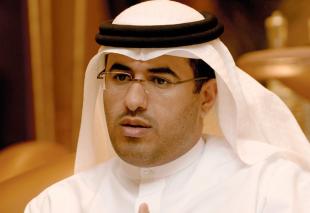

ADTA's Emiratisation bid

ADTA director general His Excellency Mubarak Al Muhairi says the aim for 5% of the tourism workforce to be Emirati by 2012 is truly attainable
Abu Dhabi has become known for its careful planning when it comes to building its travel and tourism infrastructure, but now it has turned its attention from the hardware to the software — its people.
Currently less than 1% of Abu Dhabi’s tourism workforce is Emirati, but the ADTA is targeting an increase to 5% by 2012.
It’s an ambitious target, but ADTA director general His Excellency Mubarak Al Muhairi is confident it can be achieved if the correct education processes are adhered to.
He believes that by working with “world renowned” educational institutions — he cites New York University and Paris-Sorbonne University as just a few examples — the target is attainable.
“This target is very challenging, but sometimes I think it is good to create challenges such as these,” says Al Muhairi.
“We are already working with educational institutions — some of which are international and not yet based here — so we can provide the necessary education to ensure that Emiratis can work in this sector.”
Al Muhairi spoke to Arabian Travel News at last month’s GIBTM show for the meetings industry at the Abu Dhabi National Exhibition Centre (ADNEC) where the ADTA unveiled the Advantage Abu Dhabi (ADD) initiative — a venture capital-type apparatus designed to support MICE and business tourism sector.
It will allow business event organisers with a viable proposal to apply for support such as grants, government endorsements, cost rebates and marketing help.
The ADTA will support the ADD initiative with a professional development and training strategy in a bid to give Abu Dhabi a “distinct competitive edge” as a destination.
The second phase of this strategy is where the ADTA’s 5% Emiratisation target comes into play.
“Abu Dhabi has made education a priority on its agenda,” continues Al Muhairi.
“Feedback we get from major institutions is that we should work together to devise some shorter programmes and one- and two-year certificates [for travel and tourism courses].”
He concedes that Emiratis are currently “not aware of the opportunities available in the travel and tourism industry”.
“They think it’s all about hotels and that’s it, but most importantly [the reason they are not getting involved in the industry] is because the educational programmes aren’t there,” he says.
“If you educate Emiratis they will learn about the industry — they can be tour guides or receptionists. Their perception needs to change by bringing them information.”
Al Muhairi says that at this stage, the ADTA will support the private sector with training initiatives for Emiratis wishing to learn about the travel and tourism sector.
“Then, in the future, once people (Emiratis) are ready to work, we will make sure that the private sector is involving them,” he concludes.
Al Muhairi upbeat about tourism project progress
Abu Dhabi appears to be one market that has been relatively sheltered from the current economic crisis, especially in terms of its burgeoning travel and tourism industry.
In fact, ADTA director general His Excellency Mubarak Al Muhairi has reassured the private sector and the public that all tourism projects planned are underway and should be delivered on time.
“I don’t think we are experiencing a problem with projects under construction, particularly our cultural projects. They are all going ahead according to our timelines — there are no delays,” he says.
“We have looked at things that we haven’t yet launched and tried to re-prioritise, but that doesn’t mean no new projects will be launched.
“In a tight liquid market, most entities are dealing with banks, which can slow things up, but don’t forget, there is market demand for tourism projects and the ones we have launched, they are under construction and nothing has changed.”
Al Muhairi predicts that the financial crisis will be “short term” and that a long-term view needed to be taken in that planned tourism projects should go ahead.